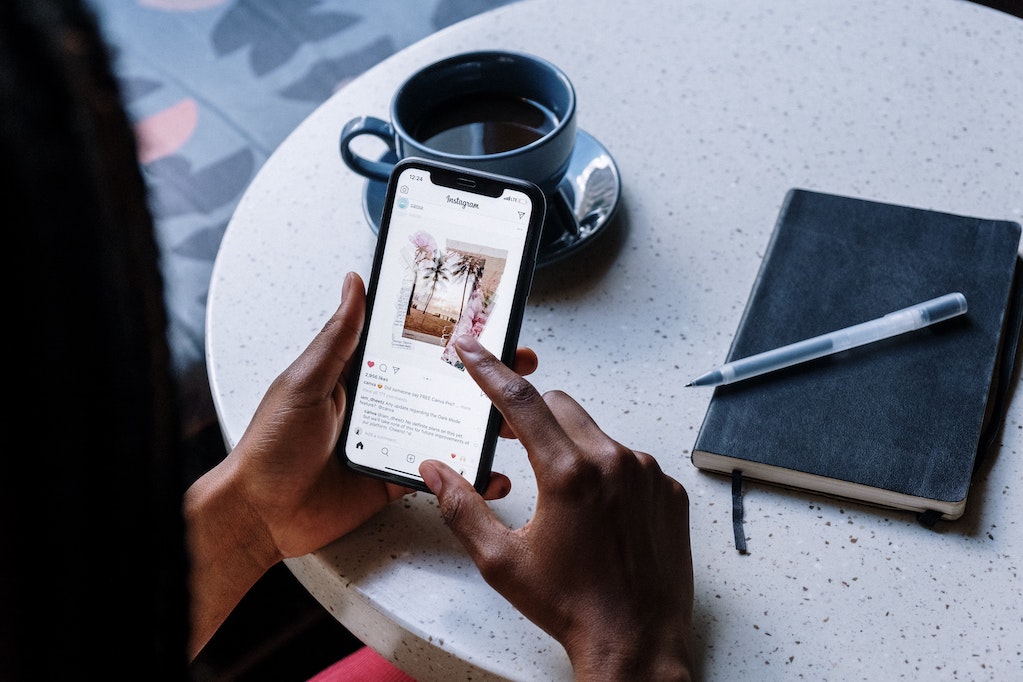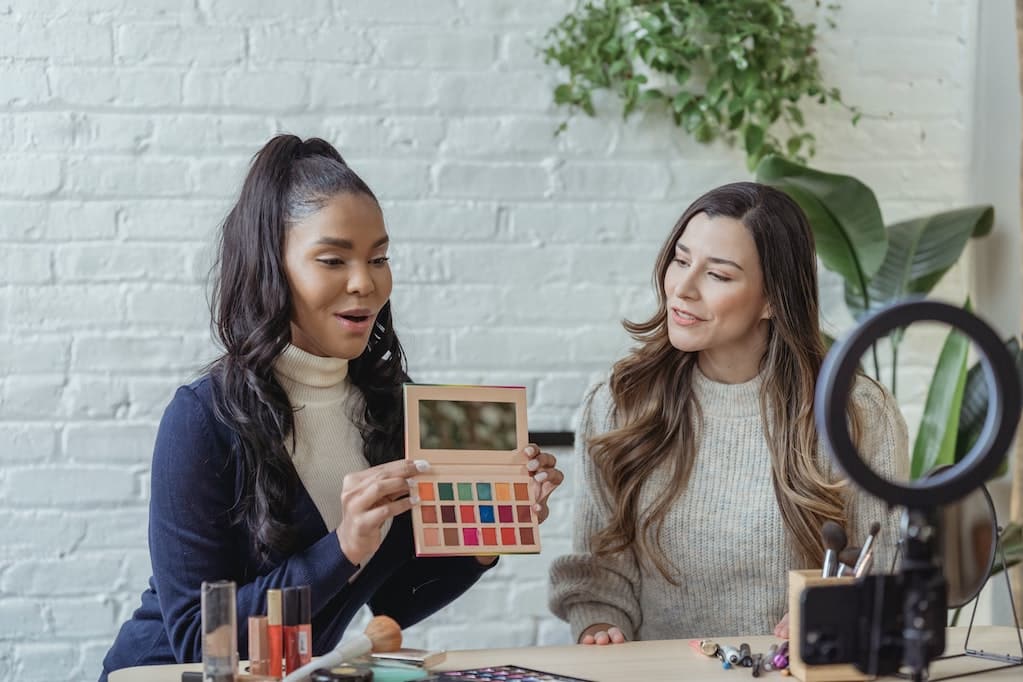
Recently, while meeting some colleagues for drinks after work, I was introduced as an influencer (by a friend) to a small group of people seated next to us at the bar. One gentleman in the bunch took umbrage with that word in particular and began a 10-minute diatribe about “annoying people making videos on their phones,” who have somehow been led to believe they have any real skills, qualifications, or power to influence or change anything. In fact, he found it disturbingly absurd that being an influencer could be mistaken as a “real job.”
I listened politely as he prattled on about a topic clearly beyond his range of knowledge, but decided not to interrupt him. His rant provided me with enough time to Google a few articles on the topic of influencer marketing and share them with some of the others, all while enjoying pleasant sips from my delicious dirty martini. When he finished, I began my rebuttal by correcting my friend’s mistake of my actual job title, which is Partnerships Manager, and also stated my professional qualifications, which include 17 years of work experience in affiliate marketing, but also as a part-time influencer with a few brand collaborations under my belt, for which I had also been compensated.
Complete silence.
My response piqued the curiosity of some of the others in the group, who now wanted to know more about the nature of my work. If you’ve ever tried to explain online marketing, or any type of web-based business venture to people who are unfamiliar with the industry (or believe it really exists), you know how challenging it can be to give a simple, digestible, yet concise answer, and hope they get it. For many years, my family described my work as “something to do with the Internet.”
Putting on my teacher’s hat, I decided to take the opportunity to give my audience a crash-course in “Influencer Marketing 101,” of which they were all quite eager to hear my expertise on the subject.
Including the critic.

When people hear the word “influencer,” they often envision trendy twenty-something-year-olds posing for selfies in some of the most inconvenient locations for views and likes on social media, outfitted in high-end cosmetics, designer labels, and the latest iPhone. Very few accept the possibility or reality of influencers enjoying lucrative full-time careers in a booming industry with an expected revenue projection of more than $4 billion dollars in 2022. That represents a whole lot of moolah for a business-savvy content creator with a recognizable social media presence, even nano-influencers with as few as 1,000 followers.
Prior to the pandemic, brands typically called the shots when it came to collaborations, but things have quickly changed as influencers have now begun to view their personal platforms as equally valuable brands — capable of shaping ideas and changing lives. Content creators, as some like to be called, are using their social popularity to forge new paths to more fulfilling careers and financial freedom as “The Great Resignation” continues to disrupt the corporate world. They are accepting collaboration requests and agreements on their own terms.
A number of blogs and experts have covered the topic, but most influencers have the same basic requirements when choosing to work with brands. As an affiliate marketing expert by trade, but also one who happens to be a professional influencer, I agree with all of them. In order of importance, here are my top four considerations of what influencers are looking for from brands.
1. Full Transparency
The age-old saying, “Do what you love, and the money will follow” is the foundation influencers and content creators build upon. While there’s no greater thrill than seeing one’s vision transformed into a “better mousetrap” that solves the world’s problems, every influencer seeks to work with brands offering relevant messages and products to be enjoyed by their armies of followers. They give top priority to those offering transparency, or a peek behind the curtains when it comes to performance history, product reviews, and success rates with other influencers.
In recent years, social media platforms have been used as polarization tools along political party lines to fuel extremist narratives, which make it crucial for influencers and brands to do their mutual research on each other before working together. Influencers are especially mindful of this due to the risk of alienating or losing followers amassed through years of hard work. They are no longer eager to accept collaborations from brands demonstrating insensitivity, intolerance, or a complete lack of diversity.
Influencers are fiercely committed to maintaining the loyalty of the people who come to their social media platforms for the latest recommendations for reliable brands, products, and services. For them, true collaborations and partnerships extend far beyond the P&L report.
2. Creative Freedom and Versatility
Today, influencers insist on maintaining ownership of their original content. Authenticity is important to them, and those with high engagement rates beyond simple likes and follows, share a deep connection with their followers. They take pride in their ability to tell compelling stories resonating with users on a human level.
Over the past two years, enterprising influencers have invested in courses and certification programs designed to improve the creation of user-generated content, but also manage its usage and promotion. They strategically pursue partnerships that allow them full creative freedom, while remaining open to the brand’s specific content needs and requests.
Influencers provide access to a vastly wide range of content styles, ideas, and audiences who tune in to their platforms to consume their particular content. Brands should have an open-minded approach when considering collaboration requests. They should trust influencers to know what resonates with their followers and allow them to determine what works best. They are equally invested in the outcome, so the final results must be mutually satisfying to both sides.
It’s a creator’s market in 2023, and the brands who are versatile and easy to work with will be moved to the head of the line.
3. Collaborations That Fit Their Audience
Influencers want to work with brands whose vision and products are in alignment with their social media aesthetic and specific audiences. Before reaching out with collaboration requests, brands should consider two important details about any influencer before submitting their pitch:
- Audience – Follower count, content quality, and a heavy emphasis on engagement rate
- Platform – Most influencers create platform-specific content (Instagram, TikTok, Snapchat, etc.)
Engagement rates may vary with each, so knowing which platforms produce the most direct interaction is a key detail.
When reaching out to influencers, brands should be clear about their desire to collaborate. Their pitch should convey:
- Their reasons for interest in the influencer
- Specific details about the potential collaboration
- The brand’s desired content and audience
- The value proposition for the influencer
Timely follow up with influencers should occur within three to seven days after the initial outreach, to ensure responses and communicate next steps.
4. Equal Value and Visibility
People are often emotionally invested in the lives of the creators they follow on social media. They especially pay close attention to those whose content is relatable to their personal lives and experiences. Without question, popular influencers with large followings and deeply engaged audiences can produce amazing results. By helping brands tap into the hearts and minds of their audiences and establish relatable connections with positive messages, or high-quality products and services, influencers can propel brands into the stratosphere of boosting public awareness and financial profitability.
Influencers appreciate competitive compensation for their work, but they also expect brands to provide equal value and visibility for their social platforms. As part of a collaboration agreement, they may require verification badges and mentions on social media pages and profiles managed by the brands, making it a true partnership.
In 2023, we have the power.
What do you think about the state of influencer marketing today? Let me know in the comments below, or send your questions and comments straight to me at [email protected].
Author
Tie Davidson is a seasoned veteran in the Affiliate Marketing space. As the former Partnerships Manager at TUNE, he is committed to sharing his industry knowledge and expertise with brands, agencies, and media partners, while providing education and support for their program recruitment efforts. Tie currently resides in NYC, and spends his spare time as a local food influencer and life coach.



Leave a Reply
You must be logged in to post a comment.